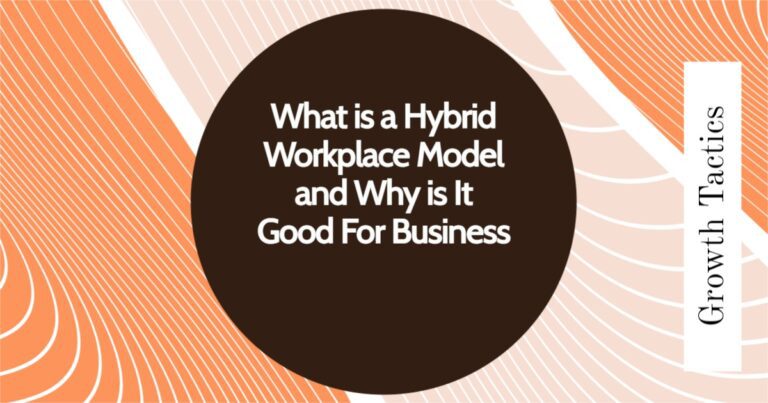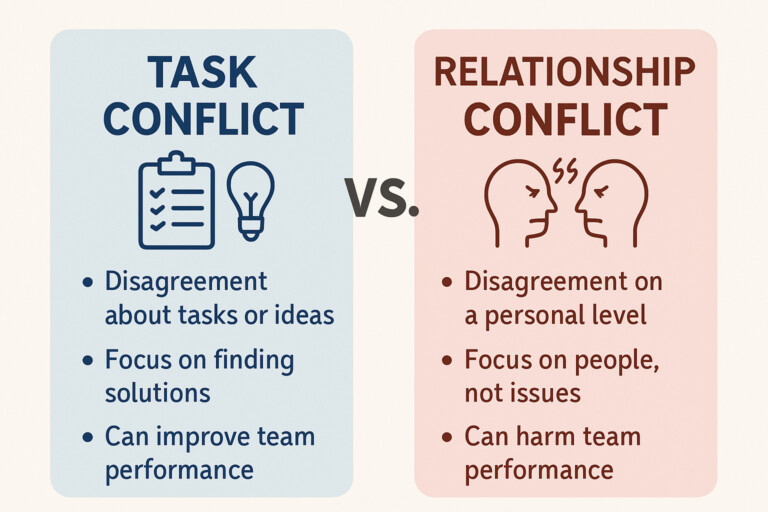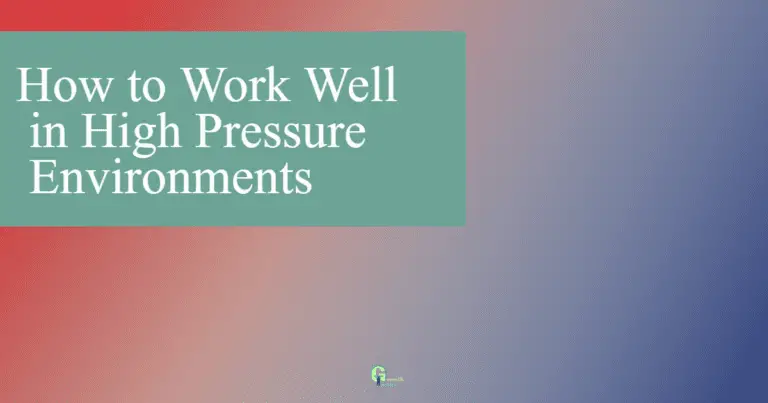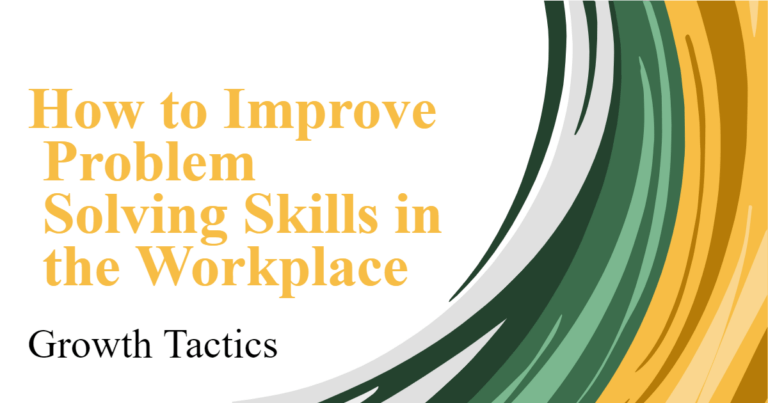Ever felt stuck in your job, dreaming of a fresh start? You’re not alone. In 2024, more people than ever are considering switching careers.
It’s scary, but it’s also exciting.
This guide will help you navigate the journey to a new career path with confidence.
Remember, you’re not just changing jobs, you’re changing your life.
Jump To Section
Why People Make a Career Change
Life’s too short to be stuck in a job that doesn’t light you up. Sometimes, we need to shake things up and find a new path.
Let’s talk about why people decide to make a career change and how you can spot the signs that it might be time for you to do the same.
Signs It’s Time for a New Career
- You’re bored out of your mind – Remember when you used to be excited about going to work? If that feeling’s gone, it might be time for a change. When you’re yawning more than you’re smiling, it’s a red flag.
- Your values don’t match the company’s – Maybe you’ve grown, but your job hasn’t grown with you. If you feel like a square peg in a round hole, it might be time to find a better fit.
- You daydream about other jobs – We all have days when we wonder “what if.” But if you’re constantly thinking about other careers, your heart might be telling you something important.
- Your health is suffering – Stress isn’t just in your head. If your job is making you sick, it’s time to put yourself first and consider a change.
Benefits of Switching Careers
Now, let’s talk about the good stuff. Changing careers isn’t just about leaving something behind, it’s about moving towards something better.
- You’ll rediscover your spark – Remember that feeling of excitement when you start something new? A career change can bring that back. It’s like hitting the reset button on your work life.
- You’ll learn and grow – New career, new skills. You’ll stretch your brain in ways you never imagined. It’s like going back to school, but you’re getting paid for it.
- You might make more money – Sometimes, a fresh start can lead to a fatter paycheck. But even if it doesn’t, the happiness you gain might be worth more than money.
- You’ll broaden your network – A new career means new people. You’ll meet folks from different walks of life, and who knows? One of them might become your next best friend or business partner.
- You’ll inspire others – By taking this leap, you’re showing others it’s possible. You might just inspire someone else to follow their dreams too.
Remember, changing careers isn’t always easy, but it can be incredibly rewarding.
It’s your life, and you’re in the driver’s seat.
If you’re feeling that itch for change, don’t ignore it. Explore it.
You never know where it might lead you.
Self-Assessment: Your First Step
Ready to take charge of your career? Let’s start with you. A self-assessment is like looking in a mirror but for your professional life.
It’s about understanding who you are and what makes you tick. Trust me, I’ve been there, and this step can be a game-changer.
Identify Your Passions and Values
What gets you out of bed in the morning?
Is it helping others, creating something new, or solving tough problems? Your passions are your fuel. They keep you going when things get tough.
Values are your guiding stars. Maybe you value honesty, creativity, or teamwork. When your job matches your values, you’ll feel more fulfilled.
Take a moment to write down what matters most to you. It’s okay if it takes a little time, this is your journey.
Evaluate Your Existing Skills
You’ve got skills, my friend. More than you might think.
Make a list of everything you’re good at, both in and out of work.
Are you a whiz with numbers?
Great at talking to people?
Don’t be shy, this is your time to shine.
Remember that time you led a project to success? Or when you found a clever solution to a problem?
Those experiences count. They show what you can do.
Discover Transferable Skills
Here’s a secret: many of your skills can travel with you to a new career. These are your transferable skills.
Maybe you’re great at organizing things, solving problems, or working in a team. These skills are valuable in almost any job.
Think about your hobbies, too.
Do you manage a community group? That shows leadership.
Love planning parties? That’s event management right there.
Remember, this self-assessment isn’t about judging yourself. It’s about discovering the unique mix of passions, values, and skills that make you, well, you.
Use this knowledge to guide your next steps.
Exploring Career Options
Let’s explore some ways to find your next big move.
Researching New Career Paths
Start by looking into careers that spark your interest. Use websites like O*NET or CareerOneStop to learn about different jobs. These sites are goldmines of information.
Don’t just stick to what you know.
Branch out!
You might stumble upon a career you’ve never even heard of before.
Remember, every expert was once a beginner.
Your perfect fit might be waiting just around the corner.
Using LinkedIn for Career Exploration
LinkedIn is a treasure trove for career explorers like you.
Follow companies that interest you.
Join groups in industries you’re curious about.
You’ll get a front-row seat to what’s happening in different fields.
Here’s a pro tip: reach out to people in roles you find intriguing. Most folks are happy to chat about their work.
You might even make a new friend or mentor along the way.
Just be genuine and respectful, people can sense when you’re truly interested.
Attending Webinars and Industry Events
Want to dip your toes in a new industry? Webinars and events are your ticket in.
They’re like backstage passes to different career worlds. Plus, you can often attend from your couch, comfy and convenient!
Don’t be shy about asking questions. That’s what these events are for!
You’ll learn tons and might even make some valuable connections. Remember, everyone there was new once, too.
Exploring careers is an adventure. It’s about finding what lights you up. Take your time, enjoy the process, and trust your gut.
Your perfect career is out there, waiting for you to discover it.
Building Your Knowledge Base
Knowledge is power, especially when you’re charting a new course.
Let’s explore how you can build your know-how and connections.
Your journey is unique, and these steps will help you find your way.
Informational Interviews with Professionals
Think of informational interviews as friendly chats with people who’ve been where you want to go.
They’re not job interviews, so relax!
It’s your chance to learn from others’ experiences.
Reach out to professionals in fields you’re curious about.
Be clear about what you want to know. People love sharing their stories, and you’ll gain insights you can’t find in books.
I’ve done this myself, and it’s opened doors I never knew existed.
Keep it short, be respectful of their time, and always say thank you.
You’ll be surprised how willing people are to help when you show genuine interest.
Finding a Mentor in Your Desired Field
A good mentor is like a compass in your career journey. They’ve navigated the waters you’re about to sail and can help you avoid the rocks.
Look for someone whose career path inspires you.
It could be a leader in your company or someone you admire in your target industry.
Don’t be afraid to reach out.
Many successful people want to give back by mentoring others.
Remember, mentorship is a two-way street.
Be eager to learn, open to feedback, and willing to put in the work. Your mentor’s time is valuable, so make the most of it.
Make Connections with Alumni in New Industries
Your school ties can be a powerful tool. Alumni networks are full of people who’ve walked in your shoes and landed in interesting places.
Reach out to alumni working in industries you’re exploring. Most are happy to help a fellow grad.
Share your goals and ask for their insights. You might find unexpected paths or even job leads.
I’ve seen countless career shifts start with a simple alumni chat. These connections can be your bridge to new opportunities.
Making the Leap
It’s time to take that big step.
You’ve done the groundwork, and now you’re ready to jump into your new career.
Your unique journey is about to begin. Let’s get you set up for success.
Crafting a Compelling Resume for Your New Role
Your resume is your first impression. Make it count.
Think about the skills you’ve gained that fit your new field.
Highlight them.
Don’t worry if your past jobs seem unrelated.
Focus on transferable skills.
Show how your experience makes you perfect for this new role. I’ve seen career changers land great jobs by doing just that.
Keep it simple and clear. Use action words.
Tell your story in a way that shows your purpose and drive.
Remember, you’re not just listing jobs.
You’re showing how you’ve grown and what you can offer.
Navigating the Job Search in a New Industry
Searching for a job in a new field can feel like exploring a new country.
It’s exciting, but it can also be scary.
That’s okay. Everyone feels that way at first.
Start with the places you’ve already connected with.
Remember those networking events and informational interviews? They might lead to job openings.
Use job boards, but don’t rely on them alone.
Many great jobs are never posted.
Reach out to your new contacts.
Let them know you’re looking.
Sometimes, the best opportunities come through personal connections.
Stay positive and keep moving forward.
Your perfect role is out there. It might take time to find it, but don’t give up.
Acing Interviews in Your New Field
Interviews can be nerve-wracking, especially in a new field. But remember, you’ve done your homework. You’re prepared.
Be honest about your career change.
Share your excitement and the steps you’ve taken to prepare.
Your passion and dedication can be very appealing to employers.
Practice telling your story.
Why did you choose this new path?
How do your past experiences make you a great fit?
I’ve seen career changers win over interviewers with their unique perspectives.
Listen carefully and ask thoughtful questions.
Show that you understand the industry and the role.
Your fresh eyes and diverse background can be a big plus.
Remember, you bring something special to the table. Your mix of skills and experiences is unique.
Own it. Be confident. You’ve come this far for a reason.
Making the leap is a big moment. It’s the start of your new chapter.
Trust in yourself and the work you’ve done. Your new career is waiting for you to step into it. Go for it!
Thriving in Your New Career
Congratulations! You’ve made the leap.
Now it’s time to shine in your new role.
Remember, every day is a chance to grow and make a difference.
Let’s talk about how you can thrive in this exciting new chapter.
Adapting to Your New Work Environment
Starting a new job can feel like your first day of school all over again. It’s normal to feel a mix of excitement and nerves.
Take a deep breath. You’ve got this.
Watch and listen.
Every workplace has its own rhythm.
Pay attention to how things work. Don’t be afraid to ask questions. Your colleagues were new once, too.
Be yourself, but be professional.
Bring your unique perspective to the table.
Your fresh eyes might spot ways to improve things. Share your ideas respectfully.
I’ve seen newcomers make big impacts just by offering a new point of view.
Continuing Career Development
Your journey doesn’t stop here.
Keep learning and growing.
Set goals for yourself.
Where do you want to be in a year?
Five years?
Make a plan to get there.
Look for training opportunities at work.
Many companies offer courses or workshops. Take advantage of them.
Find a mentor in your new field. Their experience can be a goldmine of knowledge.
Don’t be shy about reaching out.
Most people are happy to help someone who’s eager to learn.
Stay curious. Read industry news. Follow thought leaders on social media.
The more you know, the more valuable you become.
Achieving Work-Life Balance in Your New Role
Your career is important, but it’s not everything.
Don’t forget to take care of yourself.
Set boundaries.
It’s okay to say no sometimes.
Know when to unplug and recharge. I’ve learned the hard way that burnout doesn’t help anyone.
Make time for things you love outside of work.
Hobbies, family, friends, these things make life rich. They can also spark creativity that helps you at work.
Find your own balance.
What works for others might not work for you.
Listen to your body and mind.
Adjust as you go. It’s all part of the journey.
Remember, thriving in your new career is about more than just doing your job well. It’s about growing, learning, and finding purpose in what you do.
Embrace the challenges.
Celebrate the wins, big and small. You’ve come this far. Keep pushing forward.
Your best is yet to come!
Conclusion
Switching careers is a journey, not a destination. As you brave this change, remember that your unique experiences and skills are your greatest assets.
Trust in yourself and the process. Your new career path is waiting, and 2024 could be the year you take that first bold step.








